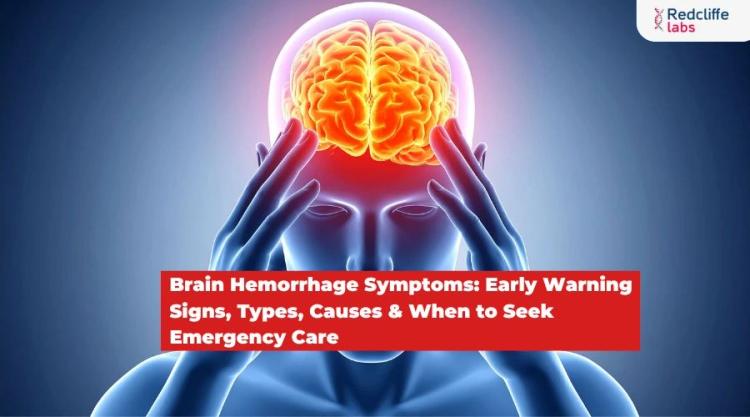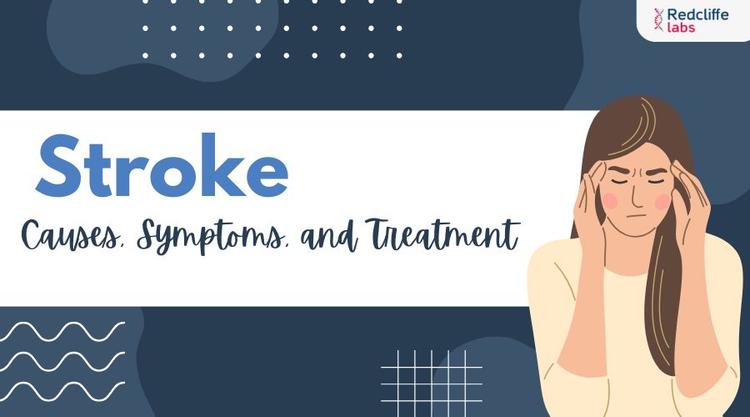Brain Tumor Symptoms: Understanding Causes, Risks, and Signs

Medically Reviewed By
Prof. Ashok Rattan
Written By Kirti Saxena
on Oct 23, 2024
Last Edit Made By Kirti Saxena
on Jul 19, 2025

In India, brain tumor poses a significant threat, with approx 40,000 new cases reported each year.
Brain tumors can range from non-cancerous (benign) to cancerous (malignant), and they may vary widely in terms of symptoms, depending on their type, size, and location in the brain.
The brain tumor might not have any visible symptoms in the early stages, but it can worsen with time if not identified early. The common symptoms might be consistent headaches, nausea, seizures, vision issues, and memory problems.
The symptoms can mimic migraines or sinus infections, delaying proper diagnosis.
However, brain tumor-related headaches often feel more intense in the morning and may be accompanied by additional symptoms, like difficulty speaking or weakness on one side of the body.
However, the symptoms and understanding of the risk factors—such as family history, exposure to radiation, and certain genetic conditions—can lead to early detection. So, in this blog, let's understand what the early signs of a brain tumor can be and what steps can be taken to control it.
What is Brain Tumor?
In brain tumors, the cells grow in the brain. It can happen in the brain tissue. Unlike normal cells that grow, divide, and die in a controlled way, tumor cells continue to grow without regulation, forming a mass or lump. It begins in the brain and is primarily called a brain tumor.
Sometimes, cancer cells start spreading to the brain from other parts of the body. These tumors are secondary brain tumors, also called metastatic brain tumors.
What are the Types of Brain Tumors and their Symptoms?
However, there are more than 120 brain tumor types based on the brain tissues they affect. Not all brain tumors are brain cancers, but even benign (or noncancerous) tumors can be dangerous because of their size or location.
Here are some common types of brain tumors including-
1. Gliomas- This is another most common type of brain tumor. Gliomas can be benign, but most of them are malignant.
Here are some symptoms of Gliomas-
- nausea and vomiting
- headache
- weakness in an arm, a leg, or the face
- difficulty balancing
- problems with memory
- seizures
2. Meningiomas- This cancer starts in the membrane around the brain, and usually, it can be malignant. Meningiomas are one of the most common types of benign brain tumors.
Here are some symptoms of Meningiomas-
- headache episodes
- weakness in an arm or leg
- seizures
- changes in personality
- vision problems
3. Pituitary Tumors—These brain tumors can begin in and around the pituitary gland. Most tumors that occur in and around the pituitary gland are benign. Craniopharyngioma is a type of cancer that appears in the pituitary gland.
Symptoms of Pituitary Tumors include-
- headache episodes
- vision problems
- changes in behavior
- changes in hormone levels
4. Nerve Tumors—Nerve tumors grow around the nerves. Another common type of tumor that occurs in the head is acoustic neuroma, which is also called schwannoma. This benign tumor is located on the nerve that attaches the inner ear to the brain.
5. Metastatic Tumor- Metastatic Brain tumors form in other body parts with cancer and move to the brain through the blood.
Here are some symptoms of metastatic tumor
- Headaches episodes
- Seizures
- Short-term memory loss
- Imbalancing in body
- Weakness on one side of the body
- Changes in personality or behaviors
- Medulloblastomas- Most common in children, originating in the brain’s lower part.
Common Signs and Symptoms of Brain Tumor You Must Know
The symptoms may depend on the size of the tumor and the location of the brain tumor. Symptoms might also depend on how fast the brain tumor is growing. Here are the general symptoms and causes of brain tumors:-
- Headaches or pressure in the head that is worse in the morning.
- Seizures or convulsions
- Nausea and vomiting
- Fatigue and weakness
- Vision problems
- Trouble with balance.
- Speech problems.
- Feeling hungry and weight gain
- Feeling very tired.
- Confusion in everyday matters.
- Memory problems.
- Change the ability to feel hot, cold, pressure, or light touch or sharp objects.
- Change in pulse and breathing rates
- Change in the ability to hear, smell, or see
Brain Tumor Symptoms by Position
Each brain region controls different functions, so symptoms may vary based on the position or location of the tumor:
Frontal Lobe Tumor- The frontal lobe is responsible for personality, emotions, problem-solving, and motor functions.
Symptoms:
- Changes in personality or behavior
- Difficulty with decision-making or problem-solving
- Loss of concentration or memory problems
- Weakness on one side of the body (hemiparesis)
- Difficulty speaking or understanding language (if on the dominant side)
- Reduced sense of smell
Parietal Lobe Tumor- The parietal lobe processes sensory information, such as touch, temperature, and pain, and helps with spatial awareness.
Here are the Symptoms:
- Sensory loss or numbness
- Difficulty understanding language (aphasia)
- Problems with spatial awareness, such as bumping into objects
- Difficulty with reading, writing, or calculating
- Difficulty in recognizing the objects by touch (astereognosis)
Temporal Lobe Tumor- The temporal lobe manages memory, emotions, and language understanding.
Symptoms:
- Memory loss or difficulty creating new memories
- Seizures or auditory hallucinations
- Difficulty understanding or processing language (especially on the left side)
- Unusual emotional reactions, such as sudden fear or pleasure
- Changes in perception of sounds, music, or familiar voices
Occipital Lobe Tumor- The occipital lobe is primarily responsible for visual processing.
Symptoms:
- Vision loss in one or both eyes or visual field cuts
- Difficulty recognizing objects or familiar faces (prosopagnosia)
- Visual hallucinations or seeing flashes of light
- Inability to perceive colors correctly
Cerebellum Tumor- The cerebellum is located at the base of the brain and controls balance, coordination, and fine motor skills.
Symptoms:
- Unsteady gait or loss of balance
- Difficulty with coordination
- Dizziness or vertigo
- Nausea and vomiting, especially in the morning.
- Headaches, especially in the back of the head
Causes and Risk Factors of Brain Tumors
Here are some factors that might be responsible for brain tumors-
- Genetic Factors- Conditions like Neurofibromatosis and Li-Fraumeni syndrome can increase the risk of brain tumors.
- Environmental Factors- Exposure to radiation and certain chemicals may increase the risk of environmental factors.
- Lifestyle and Health Factors- There are no direct causes, but poor lifestyle like smoking, alcohol, and a sedentary lifestyle can impact your body negatively.
- Age and Gender- Brain tumors are slightly more common in men, though some types, like meningiomas, are more prevalent in women.
Is it a Brain Tumor, Migraine, or Something Else?
Headaches: Explain how brain tumor headaches differ from migraines. For instance, brain tumor headaches are often persistent, worsen over time, and may occur along with other symptoms like nausea and seizures.
Other Conditions with Similar Symptoms, Such as tension headaches or sinus issues, describe key differences.
When to See a Doctor: Include tips on when to seek medical advice if someone experiences symptoms beyond typical headaches.
How to diagnose Brain Tumors?
Here are some tests that can help to identify the brain tumors-
- MRI and CT scans
- PET scans for tracking metabolic activity
- Biopsy for definitive diagnosis
- Neurological exam
Treatment Options for Brain Tumors
The treatment of brain tumors might include-
- Surgery
- Radiation Therapy
- Chemotherapy
- Steroids
- Medicines to help with symptoms
- Surgery
- Radiotherapy
If you are being diagnosed with a brain tumor, your doctor might recommend steroids to reduce swelling around the tumor.
The doctor may also recommend other medications, such as anti-epileptic medicines for seizures and painkillers for headaches.
Surgery is one of the most common treatments used to treat brain tumors safely. It's not always possible to remove all the tumors, so radiotherapy and chemotherapy may be needed to treat any abnormal cells left behind.
Managing Brain Tumor Symptoms and Improving Quality of Life
Here is how you can manage the brain tumor symptoms-
- Symptom Management- Take medications for headaches, anti-seizure drugs, and physical therapy for weakness or mobility issues.
- Lifestyle tips: Change your daily lifestyle, adopt a healthy lifestyle, engage in physical activity, and manage your stress levels.
- Regular Health Checkups—If you are experiencing symptoms of a brain tumor, consult your doctor and have the tests recommended by your doctor performed.
The Final Words
Brain tumors can be deadly if not detected early, but early detection can help manage the condition. Understand your symptoms, risk factors, and treatment options to improve your quality of life. Get regular health checkups, follow an active and healthy lifestyle, and dont hesitate to consult your doctor if you notice concerning symptoms.



